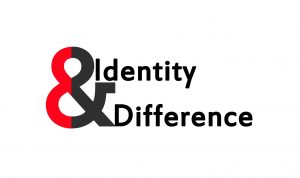
The research group Identity and Difference was created in 2006 (accredited in 2010 and 2016) and is affiliated with the Faculty of Letters and Humanities at Mohammed I University, Oujda Morocco. It seeks to bring together like-minded scholars from Maghrebi, Arab and Western universities. Our purpose is to study phenomena related to literary, artistic, linguistic and political (including violent) expressions of individual or collective identity and subjectivity in the Maghrebi and Arab contexts (before and after the Arab Spring) characterized by the questioning of a number of received ideas about what is but also how both individual and collective identity is formed. Our research focuses on the tensions that often accompany identity proclamations and essentialist identity politics which are themselves the result of the emergence of highly publicized often virulent and sometimes violent claims of the “right to difference”, cultural diversity and hybridity. Member researchers dedicate their work to the analysis the discourses, the politics, aesthetic and ethics of enunciation of identity in literary and cultural productions in Morocco, and the diaspora in migration contexts. “Identity and Difference” encourages the study of these cultural and literary productions taking into account the historical, social, economic and political factors that shape our societies.
Scholarly objectives:
Our aim is to shed light on the problems of perception and representation of self and the other focusing on the aesthetics, politics of the enunciation of subjectivity and alterity as well as on memory and the imaginaire. Research by the group members and affiliated researchers seek to push intellectual endeavor toward more open and comprehensive perspectives on social, political and cultural phenomena that characterize our complex realities.
Research topics:
1) Ethics and aesthetics of “self-writing” (fiction of self and self-representation): We are interested in different aspects of the staging of the self (singular or communal) in the socio-historical contexts of fragility of individual and collective identity.
2) The social construction of identity:
under this heading fall gender studies with a focus upon gender identity and gendered representation as central categories of analysis. We use the concept of gender to analyze a wide range of disciplines. Although many lines of argumentation in gender studies are inspired by feminism, a broad variety of theoretical approaches are used to study the categories of gender.
3) The symbolic effects of migration:
Based on the fact that migration is fundamental in our current realities, we aim for deep analyses of new modes of enunciation of the migration experience and perception of political or cultural boundaries and their transgressions.
4) forms and mechanisms of cultural dis/appropriation:
We study the processes of translation, rewriting, in appreciation or depreciation that highlight the mechanisms by which we appropriate and disappropriate “objects” specific to spheres of identity or otherness. These three dimensions allow for a better understanding of how the contemporary subject, having no unique place of reference, is part of a plural enunciative space.